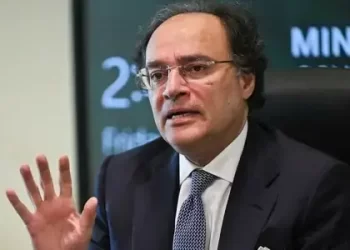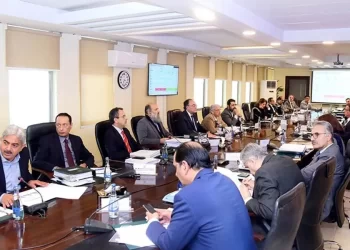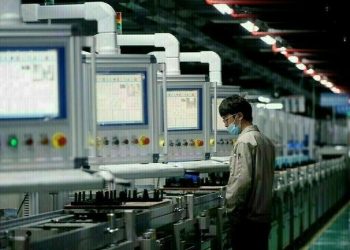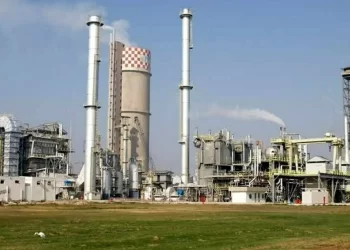ISLAMABAD: Minister for Finance Muhammad Aurangzeb Thursday unveiled the government’s strategy to implement digitisation in the Federal Board of Revenue (FBR) for bringing high net worth individuals into the tax net.
The FBR so far sent out tax notices to 186,000 high net worth individuals for possessing substantial assets, income and vehicles but never contributed up to the desired mark.
The top five percent wealthy individuals, i.e. 670,000 are the potential tax dodgers in the country who spent money but never bothered to come into the tax net. These 0.6 million high net worth individuals are on the radar screen of tax authorities.
However, the minister for finance did not reply directly when asked whether the government would bring mini budget or make an effort to convince the IMF for slashing down the FBR’s tax collection target keeping in view the shortfall in the range of Rs0.34 trillion.
The minister for finance replied that they would show the IMF sincere efforts undertaken by the government, adding that some assumptions were changed as inflation came down at accelerated pace. We will share all details with the IMF mission in “good faith” when they will come for review talks, he added.
Flanked by Minister of Information and Broadcasting Ataullah Tarar, State Minister Ali Pervez Malik and FBR Chairman Rashid Mahmood Langrial, the Minister for Finance said that the National Fiscal Pact was signed by the Centre and Provinces and it would be implemented in cooperation with the federating units.
He said that the Agriculture Income Tax (AIT) law was passed by the Punjab’s assembly while other provinces were making progress at different stages. The finance minister said that the FBR achieved revenue growth of 29 percent but the target for current fiscal year was set with an ambitious target of 40 percent.
Sharing the criteria for prioritising potential high net worth individuals, the FBR chairman said that the FBR identified 190,000 non-filers on the basis of six factors such as who earned bank profit of Rs1.3 million per annum, own more than three vehicles with cumulative value of Rs10 million, transaction of more than two properties with cumulative value of Rs16 million, withdrawal of more than Rs3.5 million per annum and possess two bank accounts, deposited at least Rs28 million and owns a credit card.
The FBR chairman said that the FBR could easily collect Rs50 to Rs60 billion from these high net worth individuals but conceded that the tax laws could not be implemented as criminal law so there was a set procedure which would be followed.
The FBR’s official data shows that Regional Taxpayer Office (RTO), Lahore, sent out tax notices to 38,828, RTO-II Karachi 15,000, and LTU Karachi only 75 individuals.
For sharing digitalisation update for execution of FBR’s Transformation Plan, the tax compliance gap stood at Rs7.1 trillion including sales tax of Rs4.1 trillion, income tax Rs2.4 trillion and Customs Duty Rs0.6 trillion.
Only 38,002 have filed their returns and deposited Rs377.62 million. It was agreed by the government and FBR high-ups that in the short run the FBR might face revenue shortfall but there is no other way to plug leakages.
“Our hands have been tied and there is no other way for broaden the tax base,” the finance minister said, adding that how long the FBR would collect taxes from salaried and formal manufacturing sector so the retailers and others would have to come into the tax net.
He said that the tax-to-GDP ratio hovered around nine to 10 percent which would be jacked up to 13.5 percent over 5-year period.
The FBR chairman said that the government undertook actions against sugar sector and also implemented faceless assessment and examination mechanism to end collusion among the importers and Customs high-ups.
He said that the PRAL’s new board was inducted. The new hiring will be done with an injection of Rs4 billion. The FBR will hire 550 new auditors to improve efficiency, he added.
Copyright media, 2024









